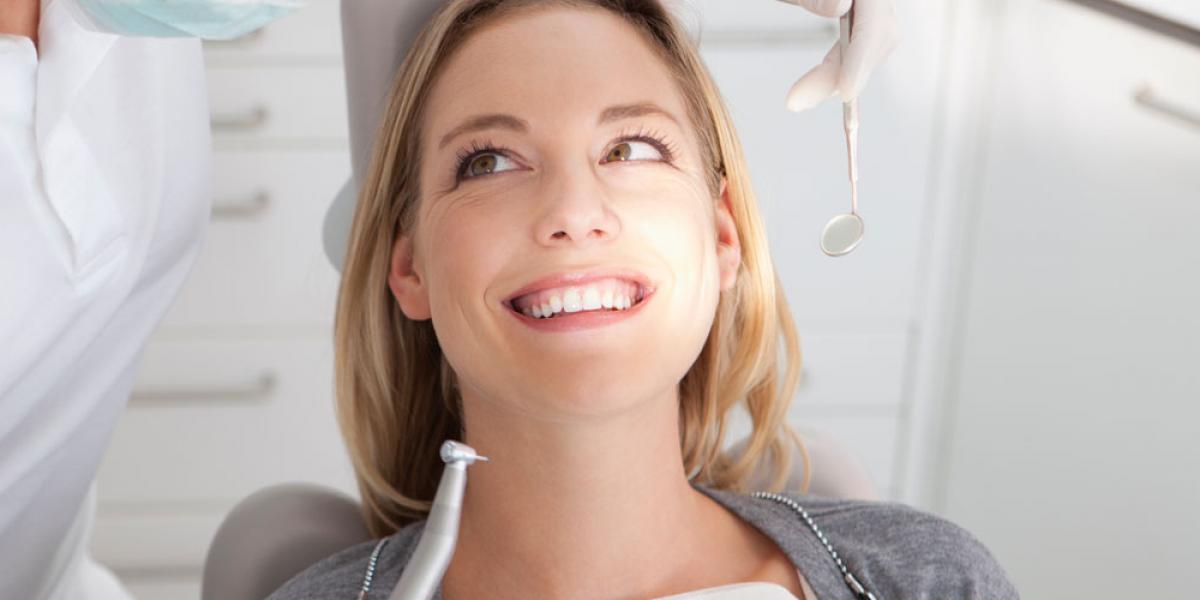
14 Dez, 2020
Put dental health - and routine dental care - at the top of your to-do list
Yvonne Wolny, DMD, BCBSRI dental consultant
Throughout the COVID-19 pandemic, there has been a tremendous focus on following guidelines to safeguard your health while also recognizing the importance of not putting off routine care in order to maintain good health. Total health is critically important. This includes physical, mental AND dental health. Regular dental check-ups are important now more than ever for many reasons.
At the beginning of the pandemic, the American Dental Association (ADA) recommended that dental practices postpone elective dental procedures and provide only emergency dental services, to help patients stay safe. Over the course of the last several months, most dental practices have begun seeing patients again for routine and elective procedures, while adhering to health and safety protocols.
Why is oral health so important?
Keeping your mouth, teeth and gums healthy is an important part of keeping your whole body healthy. Oral health can be a window into your overall health. Poor oral health can affect the rest of your body.
Countless bacteria coexist in our bodies happily; however, sometimes these bacteria can be harmful. In your mouth, they can lead to tooth decay, gum disease and other oral infections. These same bacteria can also affect many other parts of your body if not kept under control. Simple practices such as brushing, flossing and limiting sugary and acidic foods - as well as regular dental check ups - can help limit oral disease and reduce inflammation in other parts of the body.
The link between oral health and disease
Oral bacteria can cause inflammation, which, if left untreated, can lead to gingivitis and later periodontitis (gum disease). This inflammation has been shown to have connections to certain conditions because it sets off a cascade of inflammation in the body (systemic). This systemic inflammation is linked to several diseases such as cardiovascular disease (heart disease, clogged arteries and stroke), pregnancy complications (low birth weight babies, premature birth), respiratory diseases (pneumonia) and diabetes. Further, new emerging evidence is linking uncontrolled periodontal disease to an increase in respiratory complications from COVID-19.
Conversely, having diseases such as diabetes and cardiovascular disease that are not well controlled, can lead to inflammation and in turn worsened oral health, especially gum disease. Also, diseases that cause a dry mouth including Sjogren’s disease, ESRD (end stage renal disease), and GVHD (graft versus host disease) can lead to an increased rate of cavities due to a decrease in saliva. Many medications can cause a dry mouth as well including asthma medications, some antidepressants, antihistamines and antipsychotics, to name a few. People receiving chemotherapy or radiation therapy have an increased chance of developing oral disease because these procedures decrease the body’s ability to fight infection and/or cause damage to salivary glands, which in turn decreases saliva production.
You should always talk to your dentist about any medications that you take, as well as changes in your overall health or if you have any chronic conditions, such as diabetes. Studies have shown that uncontrolled diabetes can lead to increased periodontal disease and uncontrolled periodontal disease makes it more difficult for diabetics to control their blood sugar levels.
What you can do to protect your oral health
- Brush twice a day with a soft or extra-soft brush (don’t use a medium brush, which can damage your gums) with light pressure for at least two minutes.
- Use a fluoridated toothpaste.
- Floss daily.
- Only have water after brushing at night.
- Eat a healthy diet and limit foods high in sugar or acid.
- Don’t smoke (besides being bad for your health, smoking also speeds up periodontal disease.)
- Schedule regular check-ups and cleanings.
- Contact your dentist as soon as new oral health problems arise, such as toothaches and bleeding gums.
Regular checkups and cleanings are often covered as part of basic dental coverage. Many plans also cover these services as well as some nonsurgical periodontal services. Make sure to check with your health plan to see what is covered and to make sure that you are taking advantage of your dental benefits.
If you are currently a BCBSRI dental member but don’t have a dentist, you can find one using our Find a Doctor tool at bcbsri.com/finddoctor.

